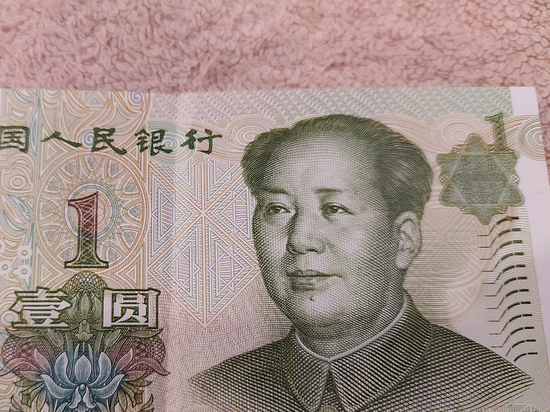Named the reason why the Ministry of Finance can resume the purchase of foreign currency
[ad_1]

This is a signal to investors: we are in order with the budget
With a high degree of probability, the Ministry of Finance of the Russian Federation will resume the purchase of foreign currency in May. Initial volumes will not exceed $200 million in yuan per month, writes Bloomberg. On the one hand, this step means a full-scale return to the policy of the fiscal rule, with all the ensuing consequences. At the same time, the maneuver is largely symbolic and is addressed primarily to the market and investors: they say that instead of “eating up” reserves, Russia is building them up.
According to Bloomberg, the decision is due to the fact that the country’s energy export revenues are “close to exceeding the target level” (despite the price ceiling and embargo on offshore oil supplies) and that the budget is “on the mend” due, among other things, to a change in the calculation of the price of Urals when collecting taxes. According to the Ministry of Finance, the resumption of the procurement program will bring about 600 million rubles a year of additional revenue to the treasury.
The currency buying program was suspended by Russia at the end of February 2022 amid the events in Ukraine and Western sanctions. At the same time, the Ministry of Finance sold foreign banknotes only as part of an updated budget mechanism designed to protect the economy from volatility in commodity markets. But now, for two months in a row, Anton Siluanov’s department has been reducing sales of foreign currency, the main purpose of which is to cover the budget deficit: in April, their total volume almost halved compared to February. Unlike the practice that was in place until the beginning of last year, today transactions are carried out with Chinese yuan, and not with dollars and euros. In July 2022, the head of the Ministry of Finance announced the impossibility of using the currencies of unfriendly countries.
“Bloomberg is a completely reliable source, with its insiders in the Russian echelons of power. Accordingly, there are almost no doubts about the reliability of his information,” says financial analyst Sergei Drozdov. — The resumption of the purchase of foreign currency by the Ministry of Finance means, in fact, a full-scale return to the policy of the budget rule introduced in 2017. Its goal is to prevent the ruble from strengthening and create favorable conditions for replenishing the budget. So now you can definitely forget about the exchange rate of 55-60 per dollar. A weak exchange rate of the national currency is a double-edged sword: good for the treasury and the NWF, bad for the population, as it leads to higher prices, mainly for imported goods.”
It is clear that the current acute situation with the budget deficit and the fall in oil and gas revenues is pushing the Ministry of Finance to take adequate countermeasures, and this is understandable. But why was it necessary to “drown” the ruble from 2017 to 2021, when the macroeconomic and export conditions were incomparably better, blindly following the policy of the budget rule? As a result, consumer prices constantly went up, and manufacturers tried their best to optimize costs, worsening product quality (for example, due to palm oil and other cheap ingredients). Yes, Drozdov argues, the National Wealth Fund was growing with reserves, but ordinary people were neither cold nor hot from this: the economy did not develop, enterprises did not accumulate financial fat, and salary funds did not increase.
“In its actions, the Ministry of Finance proceeds not so much from pragmatic considerations, but from the need to send a clear signal to investors and the market: everything is in order with the budget – the state is able to increase its money-box again,” says Igor Nikolaev, chief researcher at the Institute of Economics of the Russian Academy of Sciences. “As for the ruble, today the exchange rate is fundamentally influenced mainly by the state of the trade and balance of payments, raw material exports, with which problems still continue.”
In January, the total monthly trading volume on the Russian foreign exchange market fell to a minimum in recent years – something around 5.4 trillion rubles. And this, of course, was sad, especially against the backdrop of a collapse in export revenues to the budget, says Artem Deev, head of the analytical department at AMarkets. But now, in his opinion, the situation with hydrocarbon supplies abroad is improving, which allows the state to resume the purchase of foreign currency even against the backdrop of sanctions. And let the volumes be small at first, the main thing is that they will be. In this case, most likely, even a new concept will arise – “petroyuan”, since it is to the Asian markets that the flows of Russian “black gold” are redirected.
Newspaper headline:
The small egg will grow with “petroyuans”
[ad_2]
Source link






